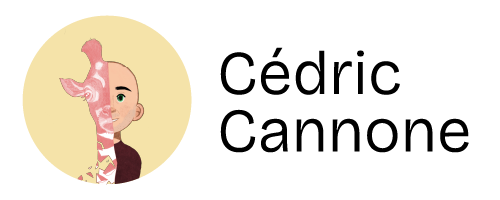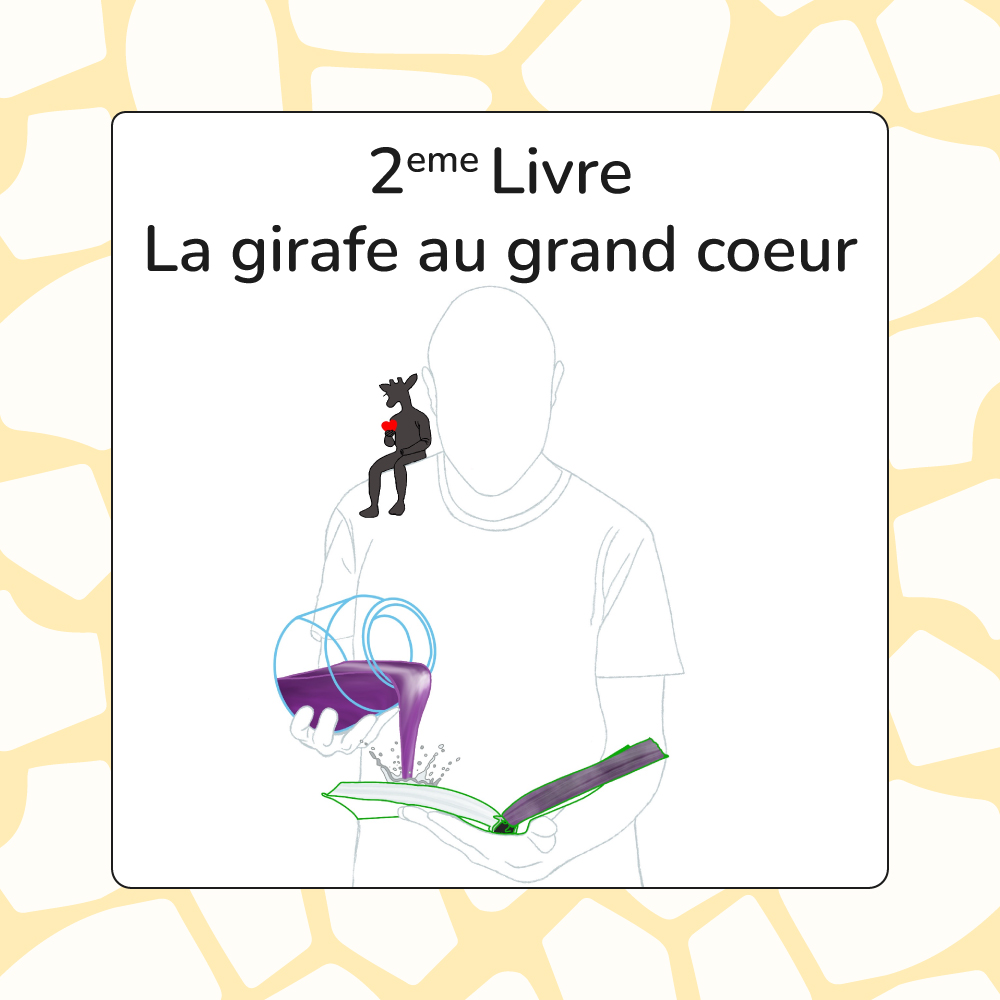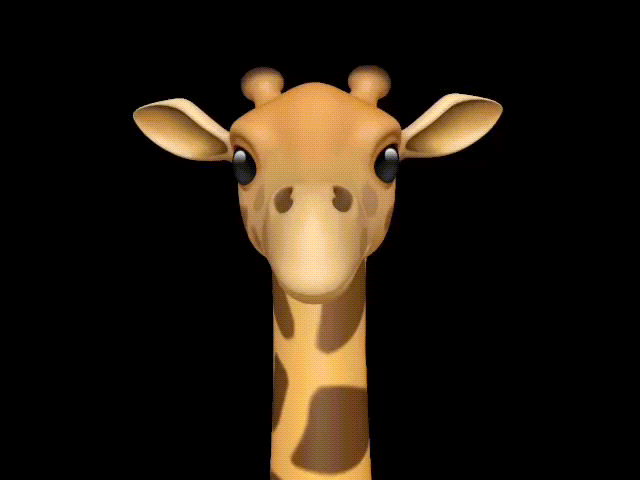A moving journey to discover! 😢
How do you deal with misunderstanding and lack of communication? 🧩
In this video, I share my struggle to understand the people closest to me: my son, who seemed distant without explanation, and my seriously ill mother, whose essential information no-one was passing on to me. Without access to French Sign Language (LSF), I had to put together the pieces of a painful puzzle on my own.
💔 A powerful account of isolation and the quest for truth.
🎥 Read and Watch this video to discover a poignant and emotional story! 👇
History text* :
Three missing pieces to the puzzles of my life:
- 1st missing piece :
One day when I was picking up my three children from their mother’s in Pau, my ex-partner asked me about an important point concerning Alex, who was 7. The way she proceeded gave me the impression of having to finish a puzzle, even though I was missing a piece. In effect, she wanted me to find the solution to our child’s problem on my own, without understanding anything about it. She concluded with this:
- Ask him…
I then turned to Alex and asked:
- You and me, we got a problem?
At 7 years old, what more could he say than “I don’t know”. Of course, it wasn’t his fault that he couldn’t explain. So I turned to his mother:
- Tell me how to talk to him without LSF?
- You deal with him.
- …
This long journey would give me plenty of time to brood, but I wanted to avoid thinking about it too much. Yet the memory of my brother on the phone with my mother came back to me. When I wanted to know what she was telling him and he told me to check with her directly when she got home. I spent my time waiting for someone to explain. And when evening came, my mother didn’t give me any more answers. My ex was acting in exactly the same way, and it was unbearable. What’s more, the kids and I didn’t speak the same language and I couldn’t even have a real discussion with them.
Before setting off, I turned around on my knees in my seat to sign a quick “ça va?” to Alex. He smiled back:
- Yes, Daddy.
- What’s wrong with Dad?
- …
He shrugged his shoulders in an “I don’t know” manner. I adjusted the rear-view mirror to get a better look at his face. It was difficult to concentrate on the road because I was so focused on him. The situation bothered me all the more as I’d never had any problems with him, despite the lack of communication in LSF. It was as if I was going crazy.
I spent the All Saints’ vacation putting together the pieces of this incomprehensible puzzle. But always this missing piece. The solutions I thought I had never matched the gaping hole. I had to redouble my efforts to solve this problem. After driving all night, I took the children back to their mother’s in the morning. I had to explain to my ex:
- I couldn’t figure out what your real problem was. Please…
- Sorry, next time you’ll talk to him again…
- …
Back in Poitiers, it was all I could think about. I gathered together all the images I had of the
children to try and unravel this mystery. Eventually, I remembered seeing their tears during the
trips at night. I’d had this intuition before, but I wasn’t sure.
To bring the kids home for the Christmas vacations, I had decided to hit the road at
calm. To do this, I left Poitiers at 4.30 a.m. to get to Pau early in the morning.
on the morning of December 24. This is what I said to their mother when I arrived:
- I think Alex can’t stand night drives, because he can’t sleep well. So I shifted my arrival time. Wasn’t that the problem?
- Now you’ve got it…
I had to figure it out for myself. To do so, I searched my memory for the slightest clue that would enable me to solve this problem. What I find harsh is the way people put me down and refuse to give me answers.
- Missing part 2:
One morning in February 2014 I went to Pau to pick up the kids. As usual, I parked in front of the house. Standing next to my car, I waited for the children to arrive. Alex got out first. But his eyes were red with tears and his mother was pushing him to come to me. I told him not to insist and to leave. Alex turned around and went inside. Usually so happy to see me, I couldn’t understand why he was like that. So I asked their mother:
- Why does he react like that?
- I don’t know… I don’t understand either…
Max and Noa arrived in turn, their mother accompanying them to the car to tie them up while I held the door for them. Suddenly, out of the corner of my eye, I saw movement in the doorway of the house. It was Alex who had poked his nose in at the door of their mother’s home. He was giving me the “I love you” sign while crying. There was nothing logical about “I love you” when he didn’t want to come. What was he hiding from me? This image of him turned me around.
Once in Poitiers, I felt awkward because I was used to looking after three children, not two. I couldn’t get Alex out of my head. This missing puzzle piece plagued me all week. It was terribly difficult to carry on with the other two as if nothing had happened. The “whys” kept piling up in my mind and the days went by. As I didn’t have the slightest clue, I texted my ex-partner to try and find out more. But she always replied that she didn’t understand either and that Alex didn’t want to talk about it, not even by Skype. I imagined the worst. Was he being abused? It made me sick. On top of that, I couldn’t even discuss it with him because he didn’t know sign language. I had to find a way to solve this problem quickly. But how could I get in touch with him? It was like when I was a kid and I wanted to unravel the story of the 500 francs. I knew I wasn’t responsible, and yet it was up to me to find the piece of the puzzle on my own. It was exhausting and took a lot of courage. So I preferred to let things settle and wait for the day when he would come to me on his own. What bothered me was that he didn’t want to Skype. It was a good way of chatting, but his mother said he wouldn’t do it.
When I brought the two children home, Alex came up to me:
- Sorry, Dad.
Then he disappeared as quickly as he had appeared, without a hug, without anything. I’d spent a whole week wracking my brains for a simple “I’m sorry, Dad”. I stood there with no real answer, unconvinced by those few words. He had become someone else. Before, he’d come to me easily, so what had changed? I felt even more devalued in my role as a father.
Weeks went by and nothing changed. Not understanding made me sick. Waiting and waiting was unbearable. I had to act and find a way to get him to talk. I came up with the idea of a family get-together at which I’d propose a game using Playmobil® and cards I’d made. I had in mind this visual method, which was easy for children to handle. All they had to do was point and move the cards or characters. In this way, communication could take place without the need for an interpreter, who would make them feel uncomfortable. So I made cards with written words: Poitiers, Pau, house, apartment, pets, various objects… All the children had to do was match them to the locations. For example: in Pau there are …, in Poitiers there are … They participated wholeheartedly, unaware of the purpose of the exercise. Then it was time to talk about the characters. I asked them this last question:
- So where do I live?
- Poitiers.
On the table, the children had a choice of “father” and “father-in-law” cards – I had cut out 3 of each. All they had to do was pick the character of their choice from “Poitiers”. I eagerly awaited Alex’s reaction. Alex and Noa took the “father” card, then looked at me for approval. Alex was stuck; his brothers knew this game would put him in a difficult position. He hesitated. “Father” or “stepfather”? Suddenly, the truth burst through his sobs:
- Sorry … please … don’t be angry …
- I won’t get mad. Come on, give me a hug, Daddy.
After weeks of going crazy, I finally had my answer. Alex knew I wasn’t his biological father and didn’t want to tell me so as not to hurt my feelings. It was a pity I’d been forced to use this stratagem to make up for the lack of communication. If the interpreter had been there, the matter would have been settled in a split second, but they didn’t want that – especially for such intimate moments. In front of his brothers, Alex felt compelled to pick up the “father-in-law” card and put it down. Then he hugged me tightly. This long moment in each other’s arms brought comfort to us both. The game had succeeded in making him express himself without being reproached by his brothers. I added:
- You know, Dad likes you a lot. Toa can say: “Cédric” or “papa”. Toa choose.
- NO. “Daddy!!!
- So take out “father-in-law”, put in “dad”.
Alex and Noa looked at us blankly. Alex tore up the “father-in-law” card and threw it in the garbage can. He was back to being the Alex I knew. Thanks to this game, I’d been able to find the second missing piece of the puzzle. But now it was my turn to feel uneasy, wounded, torn. I’d been proud to recognize him at the town hall, even though he wasn’t my blood son. But he didn’t know that.
- Missing part 3:
During the 2014 summer vacations, my mother was on my mind. I couldn’t work out what was wrong, but I felt her health was deteriorating. When I asked, she said she was fine and that I should “trust” her.
In September, the Association des Sourds de Poitiers held its Annual General Meeting, at which the board members were up for re-election. I had put myself forward as candidate for the position of president; I had just been elected by the board of directors, when I received a text message from my mother asking me to come quickly as she wasn’t feeling well. I immediately left the room without waiting for the meeting to end.
When I got to her house, I saw that she was really ill, but she reassured me:
- Don’t worry, I’m fine.
It was clear that she didn’t want to admit her real condition to me, as if she didn’t want to add to the worries I was already having. She asked me to take her to the hospital, but she couldn’t put her foot down and I couldn’t help her get up. Instead, I suggested she call the ambulance. But I couldn’t make the call for her. So she made the call, since 114 didn’t yet exist (it was created in 2011). The ambulance arrived shortly afterwards. I could see the paramedics bustling around my mother, making calls – probably to check her vitals and get medical advice. But I knew nothing. No one was keeping me informed of anything, not even my mother. The situation irritated me and I felt like intervening, but my mother stopped me by putting her hand on my shoulder. The paramedics took her to hospital; I followed.
It was as if my mother had given me a puzzle piece so that I could guess for myself what was going on. Without explanation. It was happening all over again. The episode with Alex was still fresh. That was probably why she hadn’t told me about her health problems.
Once in the emergency room, the only information she gave me was:
- See … lungs … in … water. Air … more … place. Breathing … difficult
How could she have water in her lungs. I’d never seen anything like it. To me, “water in the lungs” meant you were dead. Just like you see in the movies, reanimated people spitting out water after drowning. I was puzzled. My mother couldn’t walk because her lungs were full of water? How had she done it? Had she drunk too much? Sitting next to her, I thought for a good half-hour. I must have been hurting her feelings, because I couldn’t understand a word the people coming and going around her were saying. Then she suggested in a weak voice:
- You can go. You’re bored here. Just…
- No. I want to know. What problem….
- It’s okay. It’s okay. Please.
- Are you sure?
She nodded yes. So I obeyed and left her with a feeling of injustice. My mother knew everything, but had told me nothing about her health history. Since July my karma must have been bad. First the children, now my mother – even though I’d just been elected association president.
From that night until December of the same year, my mother remained in hospital. Various health professionals took turns at her bedside. I was also there very often. Many parts of her body were ill. I often wrote to the nurses to ask for an explanation. But they would refuse, citing lack of time or another patient to see. Oral communication was quicker, but I couldn’t understand – especially if medical terms were used. My brother and father-in-law, on the other hand, had no trouble understanding, and knew the progress of care; I had none of that. And even if I had guessed it was cancer, I was never reassured. To get some answers, I tried to catch words on the lips of the people who came into his room. I couldn’t finish the big white puzzle of my incomprehension. No matter how I looked at it, it made no sense to me. Still, I kept the piece in my pocket.
When the doctors came to see my mother, who was bedridden, they surrounded her. I’d stand a good six metres back and watch them bustle about, talking and chatting. They knew perfectly well that I was her eldest son. But they ignored me; they shut me out. I’d managed to catch two words on the fly, like pieces of a puzzle that had fallen to the ground: “sedative” – “stronger”. I grabbed them. With these new pieces, I guessed the end was near. But when? My brother and father-in-law had surely prepared for this end and had to accept it. I, on the other hand, was still putting the pieces together.
On New Year’s Eve, the family had come to pay a final visit to my mother in hospital. When everyone was in the corridor, I found myself alone in front of her bed. She was asleep. Deep inside me, rage boiled. As I was about to leave her, I kissed her and told her I loved her. It was my last chance to tell her, for she passed away that very night. Now it was time to get rid of these cumbersome pieces. So I gathered them up and took them home.
But the puzzle remained unclear. A week later, the family gathered in the death chamber of the cancer ward. Sitting in a corner, I watched as they chatted. I waited impatiently for the interpreter to arrive. When she arrived, I went straight to my brother. We secluded ourselves in a small room for a private chat. He wondered what I wanted with him. He told me straight out:
- I’m listening, but I don’t want to talk about problems … between us … from the past.
- Okay, but that’s beside the point.
- Okay, I’m listening…
- You know, you’ve learned a lot about my mother. Whereas I, nothing. Please, tell me now. I haven’t accepted her death yet, you have. So explain it to me now so I’ll know.
I needed him to pass on these essential elements so that I could mourn. To do this, I paid for an interpreter. It’s deeply unfair to have to rely on a third party to finally get a few crumbs of information. My brother complied, summing up my mother’s four-month illness in less than fifteen minutes. It was difficult to digest.



